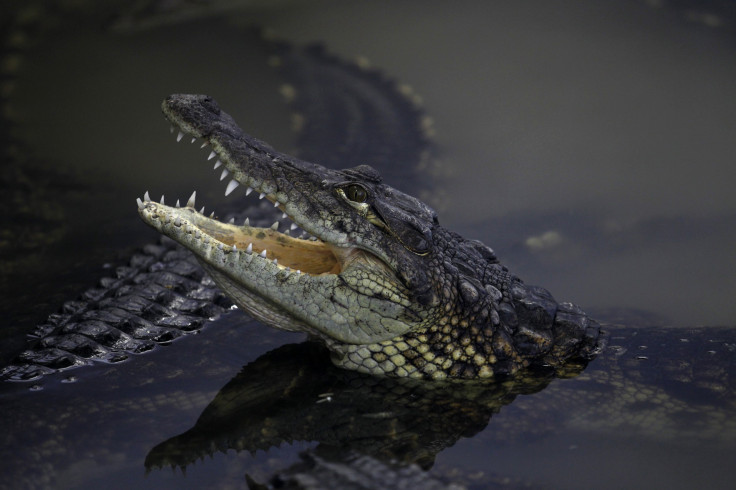Man-eating crocodile alert: 3 juvenile Nile crocodiles surprisingly make way into Florida; Pet owners likely source

University of Florida researchers have recently found out that Florida swamps may be home to the man-eating Nile crocodiles, Crocodylus niloticus. The researchers have found three juveniles of the man-eating African species among other native populations in Florida’s swamps and Everglades.
These crocodiles can grow up to a length of 18 feet and were blamed for 123 fatalities in Africa and at least 480 attacks on humans between 2010 and 2014. Now, the species has entered Florida and that may be a cause of concern.
It is still unclear how these crocodiles made their way to Florida’s swamps. One of the three was relaxing on a house porch in Miami. DNA analysis confirmed the arrival of the three juveniles. The local alligators do not attack humans generally.
Herpetology collections manager at the Florida Museum of Natural History, Kenneth Krysko, said that he is sure that the three Nile crocodiles are connected to native populations in South Africa. He also confirmed that these crocodiles can easily thrive in Florida’s sub-tropical swamps and there is no guarantee that they won’t attack humans if they get a chance.
“The odds that the few of us who study Florida reptiles have found all of the Nile crocs out there are probably unlikely. We know that they can survive in the Florida wilderness for numerous years, we know that they grow quickly here and we know their behaviour in their native range, and there is no reason to suggest that would change here in Florida,” Krusko said in a University of Florida statement.
The researchers were surprised to see one specimen grow about 28 percent faster than wild Nile crocodile juveniles. These crocodiles have adapted to the local food supply and preying on fish, birds, mammals and even local pets.
The three crocodiles captured came from the same source but that source remains mysterious. Moreover, it is not known if there are others in the swamps. It is believed that pet owners are most likely the source of introduction as large groups of Nile crocodiles have been imported from South Africa and Madagascar, the study reported.





















